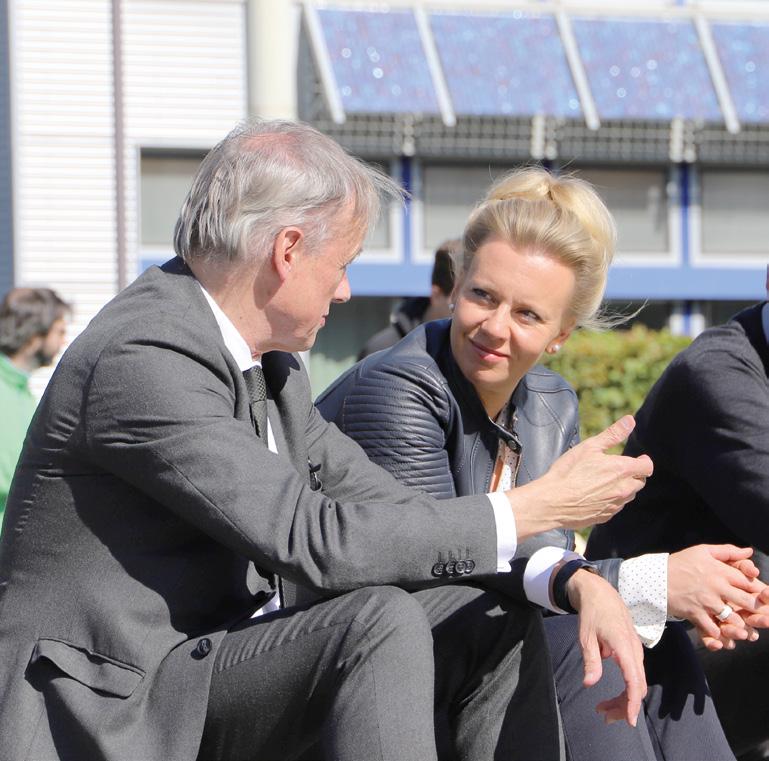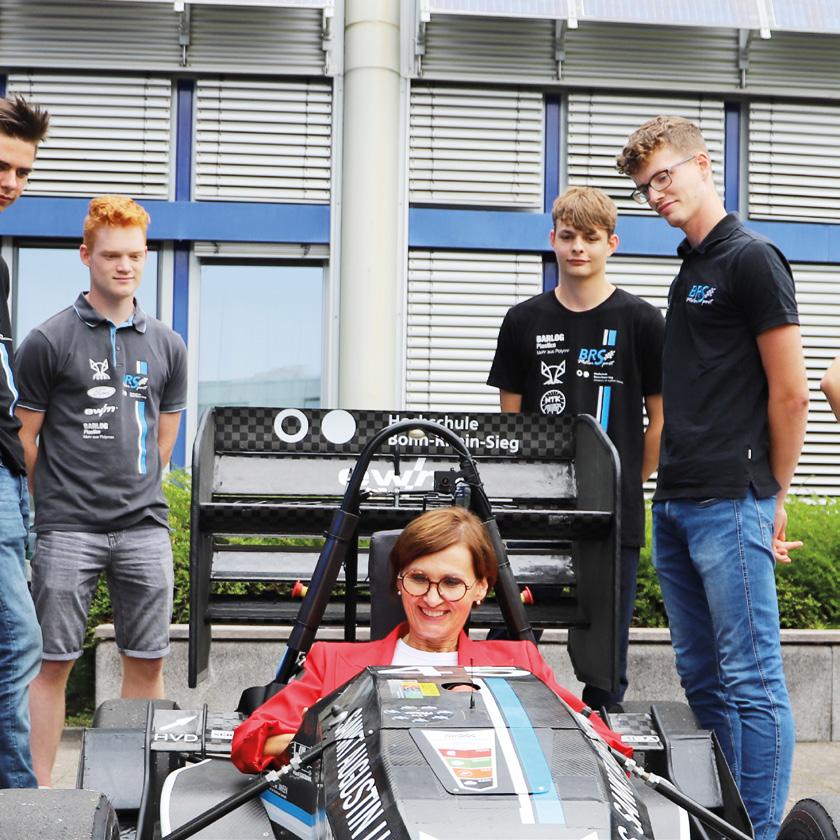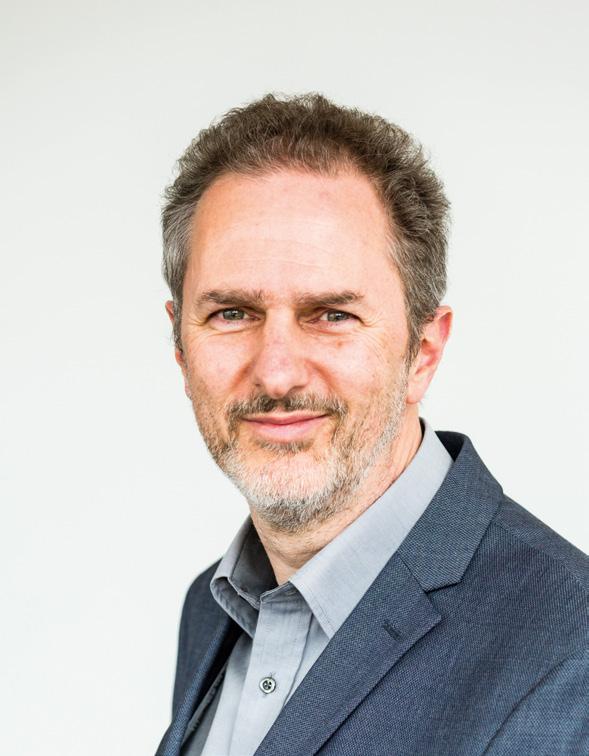
2 minute read
Ministers visit
from "foresee - recognising signs, devising solutions, shaping the future", Annual Report of H-BRS 2022
What is Hochschule Bonn-RheinSieg researching in the fields of sustainability and digitalisation? How strong is a university of applied sciences in research? How well does the transfer between science and business function?

In August 2022, Bettina StarkWatzinger, Federal Minister of Education and Research (FDP), and one month later her colleague at the state level, Ina Brandes, NRW Minister of Culture and Science (CDU), informed themselves about these and other topics. In addition to discussions with University President Hartmut Ihne and other university staff, both ministers gained an overview of current research projects. Among other facilities, they visited the hydrogen and power electronics labs, the showroom of the Institute of Visual Computing (IVC) and the Biometrics Evaluation Centre (BEZ).
“Germany needs a reliable, affordable and clean energy supply in the future. Hochschule Bonn-Rhein-Sieg is pursuing ambitious research projects in this field, which are very important for this. It is our goal to embark on an innovation decade. In this endeavour, the universities of applied sciences, in particular, play an important role as bridge builders. They overcome the boundaries between the ory and practice, between research and application, between science and business.”
Bettina Stark-Watzinger, Federal Minister of Education and Research
“Hochschule Bonn-Rhein Sieg is an important location factor for the region. In research, teaching and transfer, the university of applied sciences is consistently breaking new ground and setting trends that are visible from afar. In doing so, the university can rely on the support of the state – not least in the reconstruction of the campus in Rheinbach, which was so badly hit by the severe weather disaster.“
Ina Brandes, Minister of Culture and Science of the State of North Rhine-Westphalia
We humans are the key ingredient
A long-term need and an acute impulse are two important ingredients for change. As far as long-term needs are concerned, they arise for teaching at H-BRS due to two major transformation processes at the beginning of the 21st century. The digital transformation and the transformation towards sustainability are a challenge and an opportunity for which our students must be prepared.
In view of this enormous challenge, do we need yet another impulse to develop our teaching? Well, we have plenty to choose from. The COVID pandemic gave us a crash course in the necessity and potential of digitalisation. A dialogue with ChatGPT illustrates the current level of performance of artificial intelligence and stirs up fears that machines will soon surpass humans. We painfully felt the consequences of climate change first-hand through the flood disaster at the Rheinbach campus. And our dependence on gas has forced us to conserve energy since the Russian invasion of Ukraine.
Is it all simply fate, something we are powerless against? No, and therein lies the real challenge – to foresee together, to recognise signs of undesirable developments as well as opportunities and to create solutions for them, to shape the future in a meaningful way.
I am convinced that we humans are the key ingredient. Each and every one of us is called upon to get involved, and university teaching provides a space for this. We, as teachers, have a responsibility to create meaningful learning opportunities. You, as students, are invited to choose from the relevant courses and offerings and challenge us by discussing the topics and demanding the com petencies that are crucial for your future.
H-BRS is rising to the challenge. As a university of applied sciences, we discuss change and then consistently take action. You will find examples of how we are shaping teaching for the future here in this annual report.
Prof. Dr Marco Winzker, Vice President for Teaching, Learning and Further Education

Young talents: Currently 83 Deutschlandstipendium holders are being supported by 37 companies.










